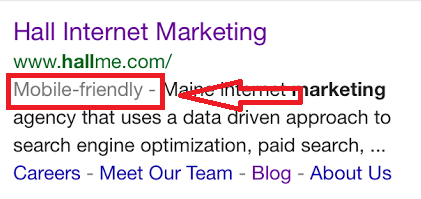 2014 was another year of calling out questionable SEO practices. Each Google algorithm update brought more and more penalties for once widespread SEO tactics. The notoriously vague Panda algorithm quality guidelines were finally leaked, and Penguin continued to wage the war on spammy backlinks. Take one look at how Google is updating its search algorithms, and it seems as though organic search is becoming more, well, organic.
2014 was another year of calling out questionable SEO practices. Each Google algorithm update brought more and more penalties for once widespread SEO tactics. The notoriously vague Panda algorithm quality guidelines were finally leaked, and Penguin continued to wage the war on spammy backlinks. Take one look at how Google is updating its search algorithms, and it seems as though organic search is becoming more, well, organic.
With the shakeups of 2014 in mind, here are four trends to remember as you forge your way through your organic marketing efforts in 2015.
- Really, content is king
Gone are the days of keyword crunching and achieving high rankings just by including certain terms. With a combination of the various Panda quality updates and Hummingbird’s brilliant adoption of semantic search, Google is catching on to poor-content-but-good-on-page-SEO techniques, and the buck stops in 2015.
Semantics is the study of the meaning of words. Semantic search is Google evolving to understand the meaning of search queries instead of getting hung up on individual words in a phrase.
Google is looking at online content the same way. Semantic search allows it to understand the overall meaning of a page’s content not just the keywords that are included within it. Google is growing up from the small child that once believed everything it was told (hello meta keywords). It’s maturing and forcing SEO to shape up along with it.
- Back links are dead. Long live the back links.
A large part of making organic search truly more organic, is doing away with spammy back links. The Penguin update targeted paid links and links from questionable sources like link farms. Sites that once relied heavily on building up a large paid back link catalog are now feeling the hurt.
Where in the past the name of the game was quantity, 2015 will emphasize quality. Link building still has strong ties to search rankings. Search engines are just smartening up and giving credit where credit is due. Based on Google’s understanding of your content, links from relevant and authoritative sites will contribute to your site’s authority.
- Mobile search optimization is here to stay
Not so much a ‘trend’ as a ‘seriously, this isn’t going away,’ search engines favor sites with mobile and responsive websites. A search engine’s job is to provide its users with the best results possible. If those results are increasingly being viewed on the screen of a phone or tablet, then it only makes sense that search engines will want to connect their users to the sites that are most easily viewed on those devices.
This was made clear over the last year with Google’s warnings and comments added to search results. Most new smart phones can no longer run Flash applications. Thus a warning regarding a site’s use of Flash was applied to search engine results pages.


Alternatively, we’re now seeing a message from Google in SERPs telling mobile searchers when a site is mobile friendly.
Given search engines’ desire to please the growing number of searchers using mobile devices, these warnings are likely just the beginning of what’s to come. If you haven’t done so already, 2015 is the year to build your mobile site or convert to a responsive design.
- The only constant is change
SEO is a synonym for organic search marketing. Like any organic being, it grows and evolves over time. Google is infamous for coming out with some rule or guideline, only to contradict it shortly thereafter.
There is no question that if you want to rank you must comply with the guidelines put forth by search engines. What’s important to avoid is implementing something that you can’t take back without consequences, ala massive paid backlink campaigns of the past. Stay on top of industry guidelines and SEO standards, be aware of algorithm updates as best as you can, and remember that correlation does not imply causality.





